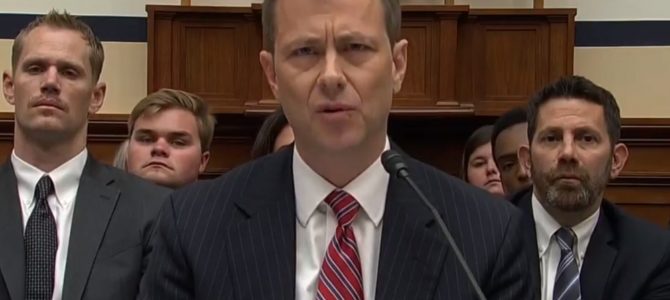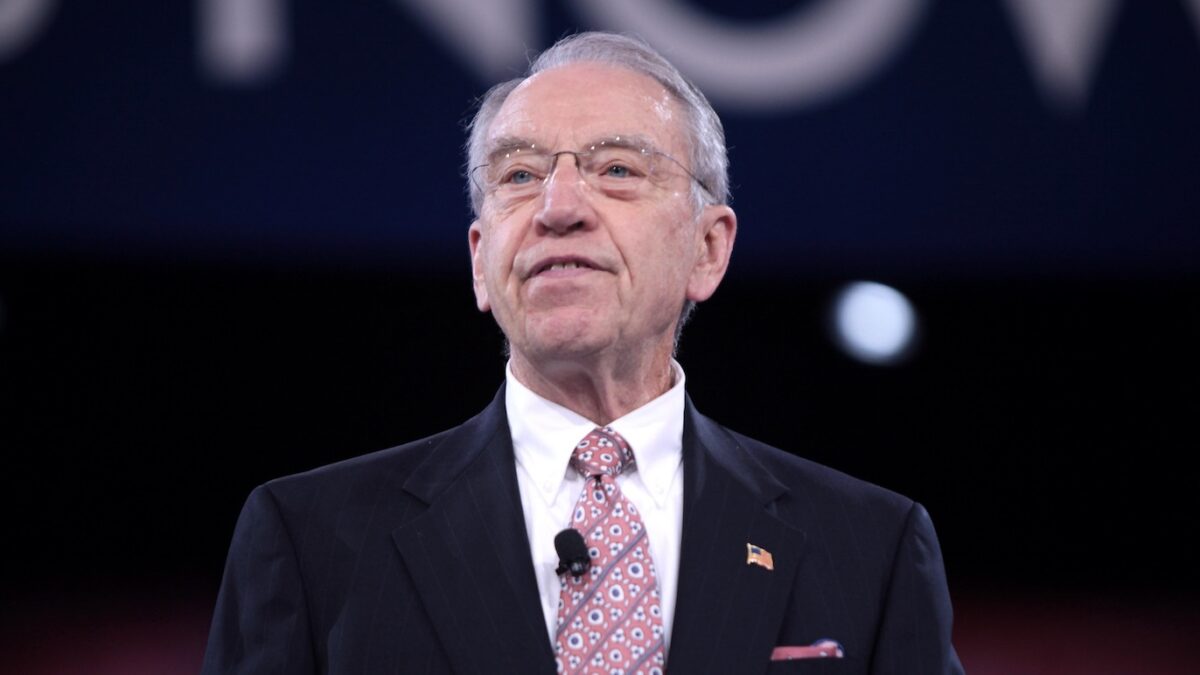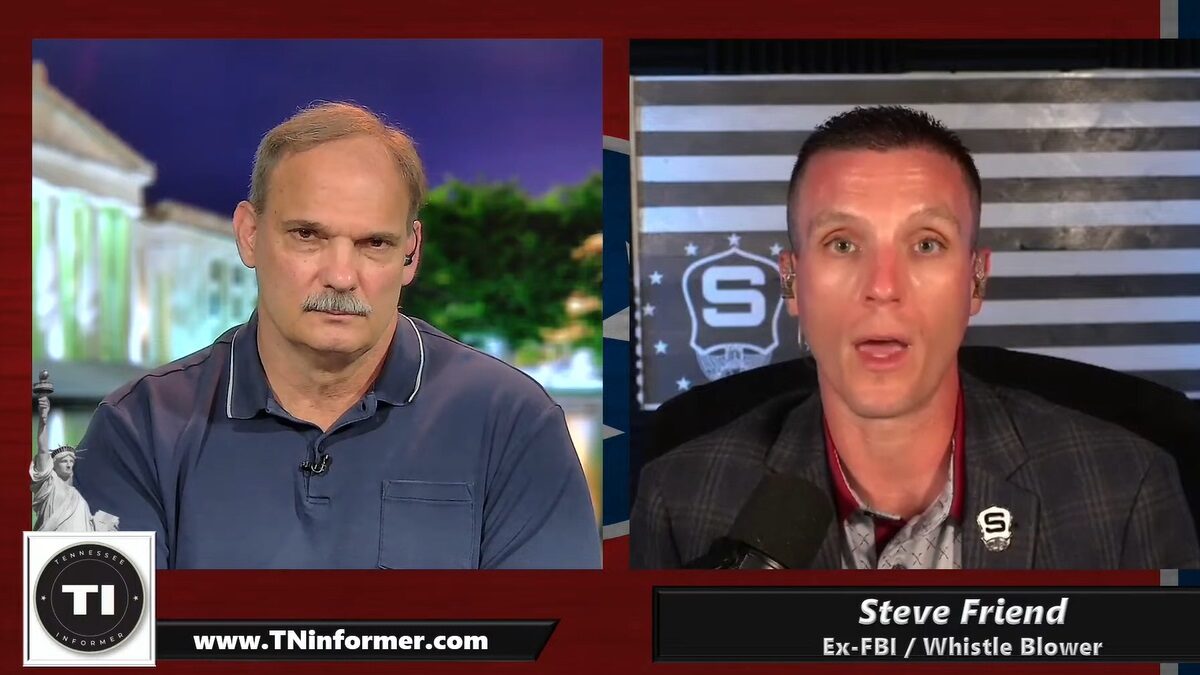
An embattled FBI official who led investigations into both Hillary Clinton and Donald Trump testified in a cantankerous open hearing on the Hill yesterday. Peter Strzok, formerly the second in command of the FBI’s Counterintelligence Division, lost his position after texts he exchanged on government systems with his also-married lover and colleague Lisa Page revealed extreme bias against President Trump and his voters.
Yesterday’s joint hearing in front of the House Judiciary and Oversight Committees was the first public hearing Congress held with the official who launched the Russia probe two years ago. Here are a few key takeaways from that hearing.
1. This Is What DOJ Obstruction Looks Like
The country is two years into the FBI’s probe of whether Donald Trump colluded with Russia to steal an election. Not a single charge has been brought by the FBI or by the Office of Special Counsel alleging collusion or treason or anything close to the charges that supposedly necessitated this investigation.
Congress began asking some questions of the FBI and Department of Justice about how it was conducting the investigation. Through the oversight process, Americans learned that the infamous “dossier” that laid out a case of collusion was secretly bought and paid for by the Hillary Clinton campaign and the Democratic National Committee. This dossier was used to secure wiretaps against Trump associates (other surveillance methods, including human informants, were also used).
The dossier was fed to both the FBI and State Department. Top intelligence officials were leaking about the Russia investigation to CNN and other media outlets. A top DOJ official’s wife worked for the firm that Hillary Clinton hired to run the “Russia” operation. That firm fed their opposition research to the FBI through him.
The Senate Judiciary and House Intelligence Committees, along with the Senate Homeland Security committee, House Oversight, and House Government Reform committees, have worked hard to uncover these details and in the face of unprecedented obstruction. Requests for documents are met with stonewalling, delays, redactions, leak campaigns, and outright refusals. Threats of subpoenas are routinely made to force even minor compliance.
Despite the length of yesterday’s hearing, congressional overseers were able to elicit almost no substantive answers to the questions they asked. Strzok claimed he was not answering questions because the Department of Justice told him not to answer questions. No matter the question, Strzok refused to answer any question about his role in the Russia probe, with almost no exceptions.
The hearing was a public revelation of the stonewalling and obstruction the DOJ has enforced against congressional oversight.
2. Strzok Somehow Came Off Even Worse Than He Did In His Texts
Despite his significant role in the Russia and Clinton investigations, the only picture Americans had formed of Strzok was based on his text messages. He spoke of his loathing of President Trump, Trump’s voters, and congressional oversight. He talked of stopping Trump’s election, of insurance policies to deal with his candidacy, and fantasies of impeachment.
The texts were between him and his also married colleague, another top-ranking official in the Department of Justice. The hearing demonstrated the texts were at best an accurate reflection of the man who wrote them. If anything, the texts were understated.
Strzok chose to present himself to the world as a smug, arrogant, and peevish man. He was defensive and condescending. His answers were almost mind-blowingly implausible. It wasn’t just that he lacked good judgment or even-handedness. It’s that he didn’t seem to have a grip on reality. He kept saying he wasn’t biased, when his bias is indisputable.
He told investigators that he would like to answer a question but that his attorneys weren’t letting him. If they later told him he could answer, he’d say he didn’t remember. He implausibly said that his affair didn’t put him at risk of compromise, in contrast to his agency’s policy.
3. Democrats Run Interference
Almost immediately, Democrats on the House and Government Reform Committee attempted to shut down the hearing. When that failed, they resorted to near-constant parliamentary inquiries and objections. At one point they actually cheered and applauded Strzok, despite his ethical failings and poor judgment, which have threatened the entire Russia investigation. The man is under internal investigation for his behavior. Yet one Democrat said he’d like to offer Strzok a Purple Heart, a military decoration awarded to those wounded or killed while serving in the U.S. military.
As silly as this behavior may seem, it indicated how Democrats hope to handle all oversight of the FBI and DOJ’s handling of the Russia probe. The message went out that every hearing will be a clown-show, even by the typical grandstanding attendant to congressional hearings. Democrats on oversight committees have fought transparency of the Russia investigation, portraying it as obstruction of a legitimate probe. All signs indicate that opposition to oversight will continue.
4. DOJ Clearly Hiding Its Relationship With Democratic-Funded Smear Group
The FBI and DOJ frequently instructed Strzok not to answer substantive questions from Republicans. One line of inquiry pursued by Rep. Jim Jordan, R-Ohio, was regarding communication between the FBI and Fusion GPS, the group that concocted the “Russia” dossier and messaging plan on behalf of Hillary Clinton and the Democratic National Committee. Strzok generally declined to answer questions.
But Strzok did admit that Bruce Ohr, husband of Fusion GPS operative Nellie Ohr, funneled documents to the FBI related to the Russia case. He refused to say what those documents were. Yesterday, Sen. Chuck Grassley asked DOJ to declassify the dozen reports summarizing Ohr’s 12 information-sharing meetings with the FBI.
The FBI used Fusion GPS-hired Christopher Steele until the end of October, when he was terminated for lying about his leaks to the media. But Fusion and Steele were able to continue funnelling information to the FBI using colleague Nellie Ohr and her husband Bruce Ohr, a top DOJ official who worked closely with acting Deputy Attorney General Rod Rosenstein.
When the Russia story first broke, Americans didn’t realize that the dossier was a secret Clinton/DNC operation, or that the unverified opposition research was sent to various Obama officials in multiple agencies. Americans didn’t know that a top DOJ official was married to an employee of the group that created the dossier, or that he was used to get information into the government.
5. The Mystery Of Why The Investigation Started
Strzok said he didn’t see the dossier until mid-September. His electronic communication that started the probe didn’t include official intelligence. Given the politically explosive nature of the investigation, the FBI and DOJ have failed to explain what they were thinking in starting a probe of the Trump campaign.
The entire investigation has major problems from start to finish, whether it’s the use of a dossier that Steele created and Bruce Ohr sent to the FBI, or the fact that Strzok ended up having to be removed from the investigation for his obvious and extreme bias. Strzok said Mueller never asked him about his texts, and didn’t seek to find out more from him about what his “insurance policy” or “impeachment” rhetoric meant.
Again, the hearing was less than substantive because of the ongoing obstruction and stonewalling campaign engaged in by DOJ. That was itself instructive.









